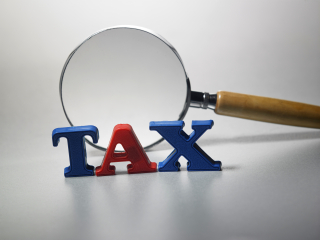Post by Andrew Baker and Richard Murphy [1]
Making Tax Work (MTW) [2] sets out the case for achieving greater transparency in the governance and management of national tax systems and identifies a variety of mechanisms and pathways for achieving this outcome. MTW identifies the responsibilities and obligations of governments, the levels of transparency they should aspire to, the role of international organisations in assisting and facilitating these processes, and how a variety of stakeholders could be involved in and benefit from enhanced tax transparency.
MTW presents tax transparency as a public good - a service that is provided without profit to benefit all members of a society and is the primary responsibility of government. Tax transparency is a process for supplying the quantitative and qualitative data, a society needs to ensure its tax system is working for the benefit of its tax authority, government, legislators, the electorate, those who pay taxes and all other stakeholders of the tax system.
What is tax transparency and why it matters?
At the heart of the claims and ideas set out in MTW, is an understanding that while revenue raising is an important function of the tax system, tax should not be understood exclusively in these narrow terms. MTW understands tax as an extraordinary set of instruments and tools for achieving those objectives deemed suitable and desirable by governments and society at large. In short tax can be used to shape society. As MTW shows in Chapter 4, tax can shape incentives, behaviours, prices and redistribution in society as a whole. The starting point for any regime of tax transparency therefore, is for governments to be as clear as possible in stating the intended objectives of their tax policies.
Being transparent and explicit about objectives is an important component of transparency and government accountability more generally. The Tax Transparency Framework advanced in MTW is intended to compare expectations and stated objectives with outcomes. This involves appraising and reaching evidence-based judgements on the effectiveness of a government and a tax authority in achieving their own stated goals.
While public services are endlessly evaluated in many parts of the world to assess whether they are delivering on stated targets and objectives, it is very rare for similar systematic assessments of the performance of tax systems in their entirety to be undertaken. Yet tax systems are not only often the life blood of these other public services, but are also a public administrative legal system, unlike any other, because of their ability to impact and shape society as a whole.
. This enormous power to tax, in turn creates a pressing need to explicitly state the objectives attached to various tax policies and to evaluate tax system performance. Tax transparency is consequently, a process which should aim to enrich and inform wider deliberation on tax matters and choices. Its importance should be understood in terms of its ability to enable an inclusive multi-stakeholder dialogue on the design of and reform of tax systems.
A framework of milestones and deliverables for tax transparency
The release of data and information is clearly all important for enhancing tax transparency and better understanding of the performance of tax systems. The report sets out several possible ways of advancing this and identifies ten initial foundational principles of tax transparency. These cover: individuals rights to access information; government obligations in publishing clear overarching objectives for tax policy; the publication of future revenue projections; open inclusive consultations on proposed tax changes; a requirement to enshrine the legal status of tax changes; more detailed accounting and reporting requirements and breakdowns by individual tax; a commitment to evaluating tax system performance using tools such as tax gap analysis and spill over assessment and to publish the results and a process for independent verification of data integrity.
The principles in their current form are ambitious. For many states, achieving these goals immediately and simultaneously will not be possible. Making Tax Work sets out and advocates a stepped progression, covering four levels of attainment: basic; intermediate; advanced and aspirational. Basic requirements cover minimal accounting data, with intermediate objectives covering explanation and annotation of tax strategies and objectives. Advanced requirements cover more detailed accounting breakdowns by individual tax and the reporting of tax gaps. Finally, more aspirational forms of tax system evaluation cover spill over assessment and reporting on actual performance relative to theoretically achievable outcomes. Meeting the requirements at one level provides the foundation for delivering on the next level.
The principles provide a basis or framework for guiding the evaluation of tax system transparency and performance, and for identifying ways in which both can be simultaneously enhanced. MTW has sought to produce a framework that can point to pathways for enhancing tax governance around the world by stimulating and informing multi-stakeholder policy dialogue on tax in ways that will help governments secure the revenues they need to build resilient, sustainable and inclusive societies and face the challenges of the future.
[1] Andrew Baker and Richard Murphy are both Professors at the University of Sheffield.
[2] This research was funded by the Global Initiative for Fiscal Transparency with the support of the Innovations in Tax Compliance project of the Governance Global Practice of the World Bank Group.
Note: The posts on the IMF PFM Blog should not be reported as representing the views of the IMF. The views expressed are those of the authors and do not necessarily represent those of the IMF or IMF policy.








